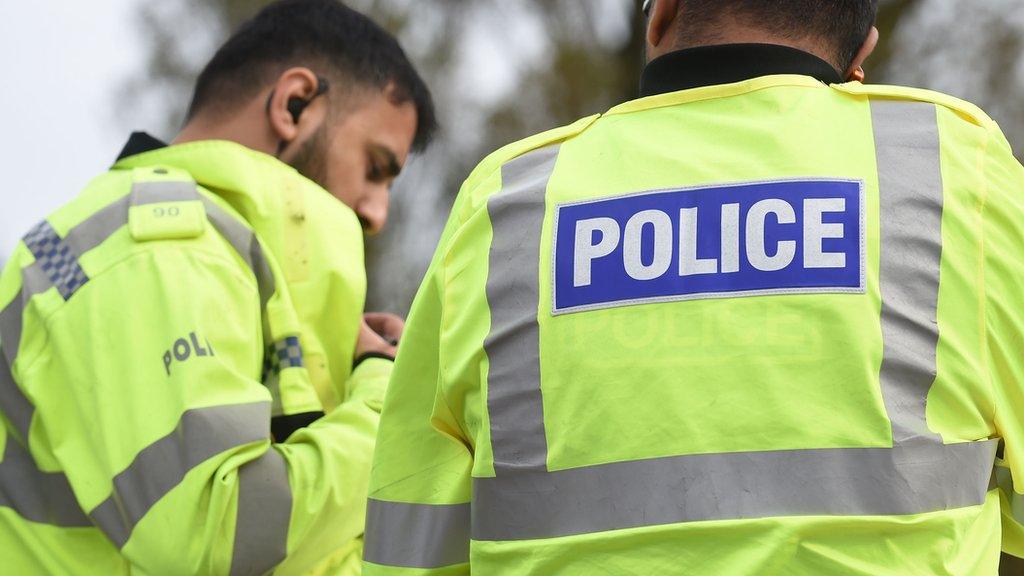Welsh election: Who controls policing in Wales?
- Published
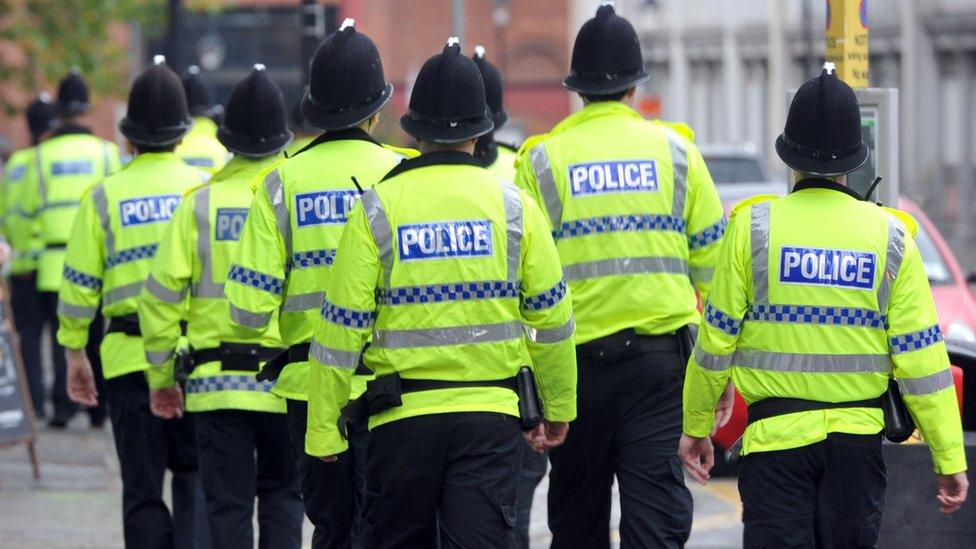
What a police force should prioritise is down to the police and crime commissioner
Policing remains one of the areas governed by Westminster, but it would be wrong to think all the power lies there.
Drill down into: a) who funds the police, b) who decides policing priorities and c) the causes of crime - and suddenly the role of those we elect on 6 May in Wales is rather important.
Roughly a third (34.5%) of the 2021-22 budgets of Welsh police forces come from the Home Office. Which means the rest was allocated by those holding purse strings here in Wales.
In some parts of the country, more than half the funding police forces currently rely on was fixed by the Police and Crime Commissioner (PCC) for that area as they set the budget.
They have a say in how much council tax we pay, because a chunk of it - the "precept" - goes to the police. In England that amount is capped but in Wales it's not.
This year, our council tax pays for 47% of the combined police budgets in Wales.
The rest - just under a fifth (18.6%) - comes from the Welsh government.
Policing priorities
It's fair to say police are there to detect crime and catch criminals.
But the bulk of 999 calls are nothing to do with a new crime.
Many, at their heart, are related to mental health problems or missing, vulnerable people. While a crime may not have been committed, it's the police that are called to assist.
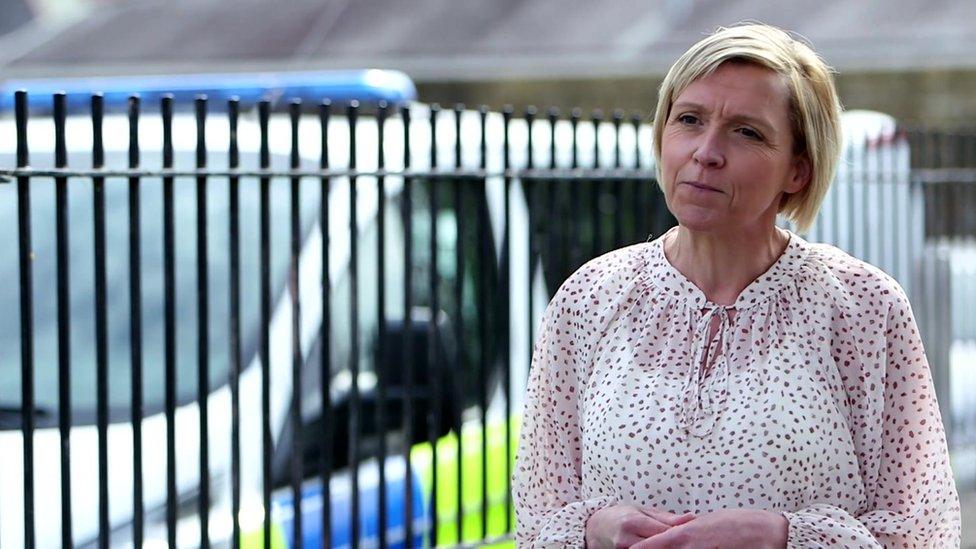
Ex-police officer Allison Turner said commissioners were "a bridge" between the public and the chief constable
The decision on what to prioritise and how to work with organisations, like the NHS and local authority social services, comes down to the police and crime commissioner.
"They will listen to the concerns of the public and convey those to the chief Constable," said Allison Turner, a former police officer, now a lecturer at the University of South Wales.
"Together they'll create what's known as the police and crime plan. Within that there's a number of priorities for the local community."
The past 12 months have also shone a spotlight on the ways policing CAN be different here, as different approaches by the governments in Wales and England created different rules on either side of the border.
Causes of crime
Speak to any prison governor and they'll tell you that a disproportionate number of offenders have a history of substance misuse or mental health problems.
Work to better understand adverse childhood experiences also shows they can be a factor in setting people on a criminal path.
The services that can help support people or steer them away from these negative influences are all funded by those we'll elect to the Senedd on 6 May.
Likewise, additional projects receive funding from the police and crime commissioners.
Why do we have PCCs?
The government in Westminster introduced them in 2012 to replace police authorities which were considered to be invisible.
The elected role - one for each of the four forces in Wales - was designed to make the force more accountable to the community.
"They are a bridge between the public and the chief constable," said Allison Turner.
"They're responsible for the appointment and also the dismissal of the chief constable, and make sure the public is getting value for money.
"The commissioner will also scrutinise policing and ensure the chief constable is accountable for how they run their force. But the PCC is also accountable to us, as members of the public."
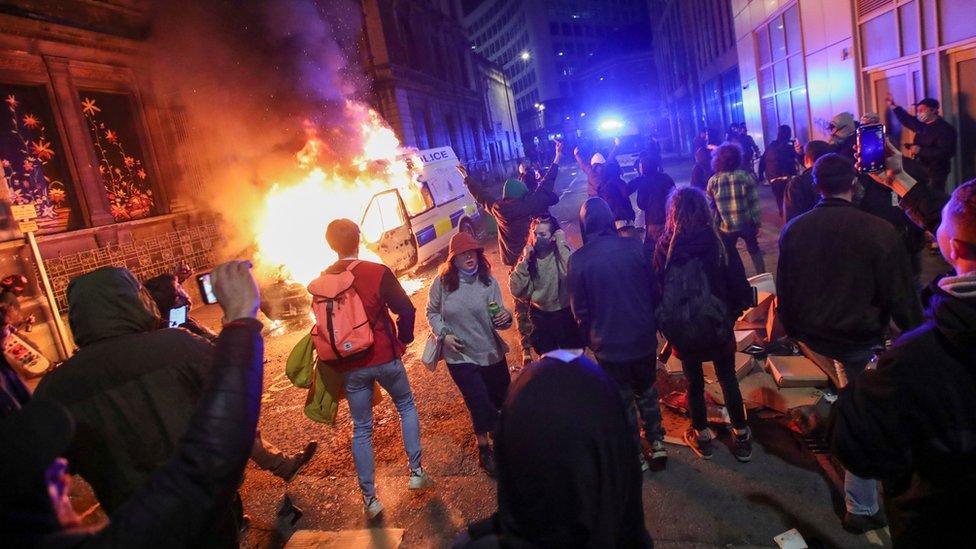
Protesters in Bristol watch a police van burn during riots last month
Whether they represent a political party or are independent, all must swear an oath of impartiality when they take up office.
But this year's election comes at a pivotal moment. The pandemic meant officers were given powers to police areas of our lives that would have been unimaginable in 2019.
Also the Police, Crime, Sentencing and Courts Bill, which is going through Parliament, could curtail the right to protest and it prompted violent clashes between protesters and police.
Newly-elected PCCs will be mindful of the potential attention required to a fragile relationship with their community.

POLICY GUIDE: Who should I vote for?
FIRST TIME: Will 16-year-olds vote?

- Published28 April 2022
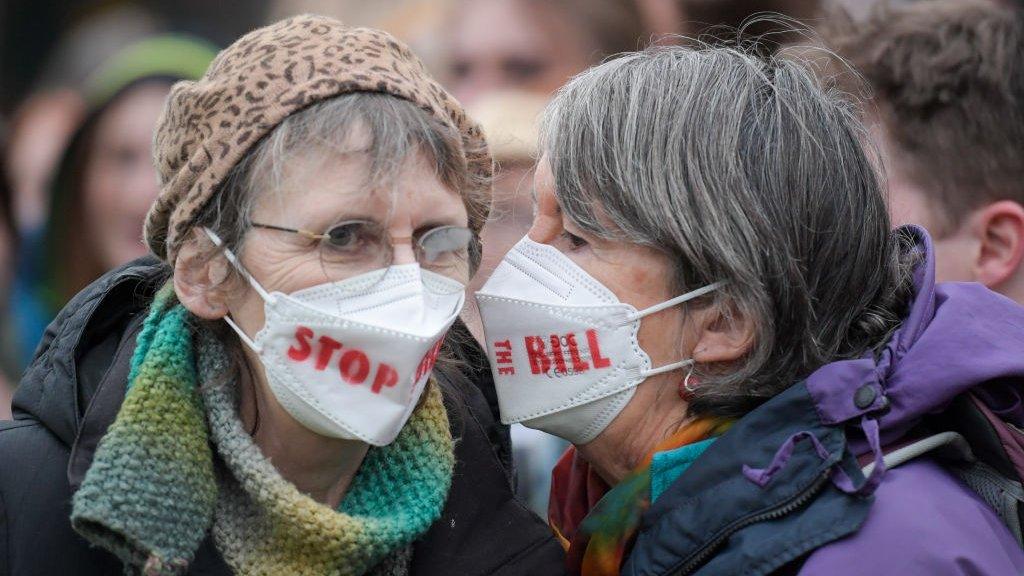
- Published2 January 2019
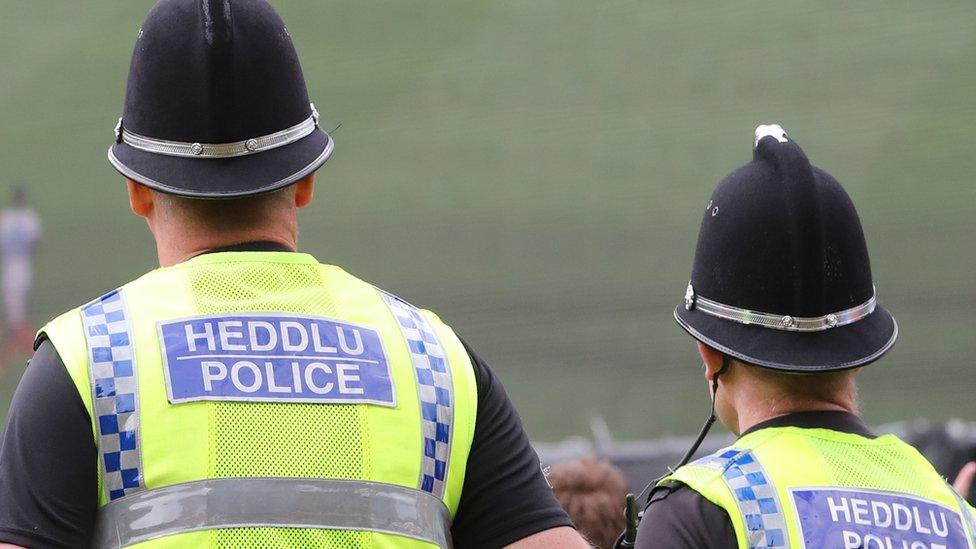
- Published21 April 2016
